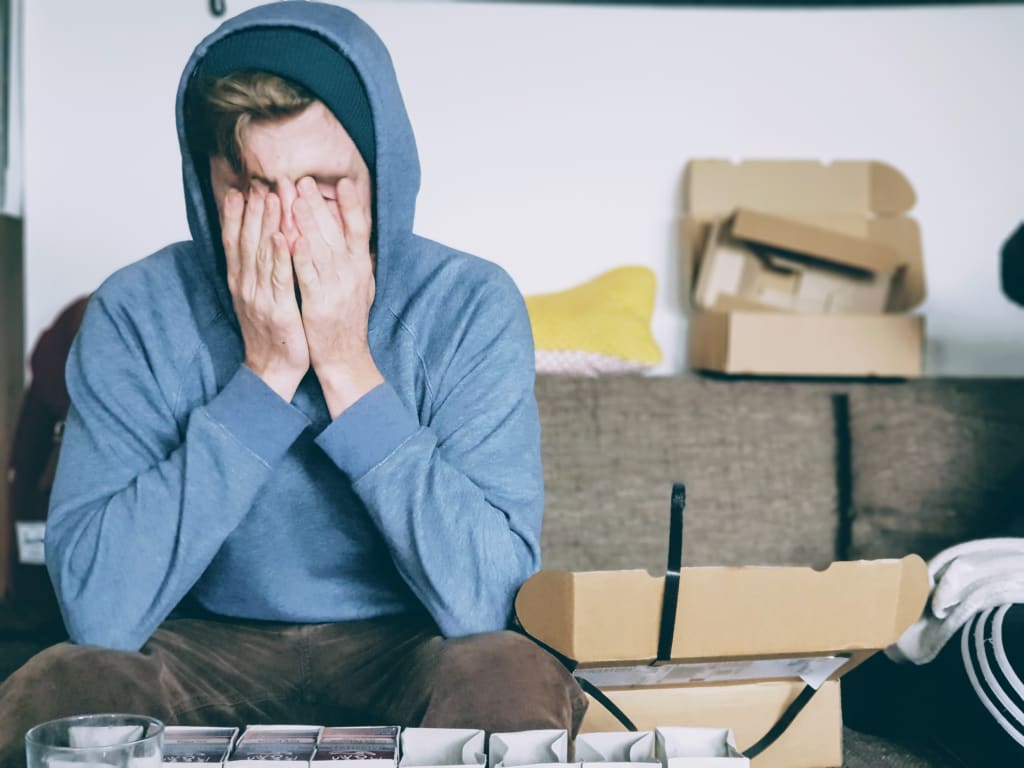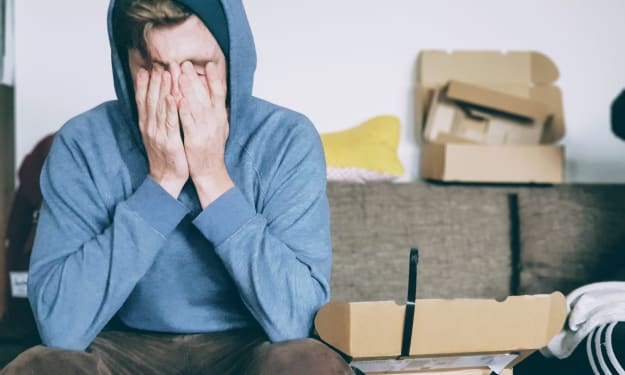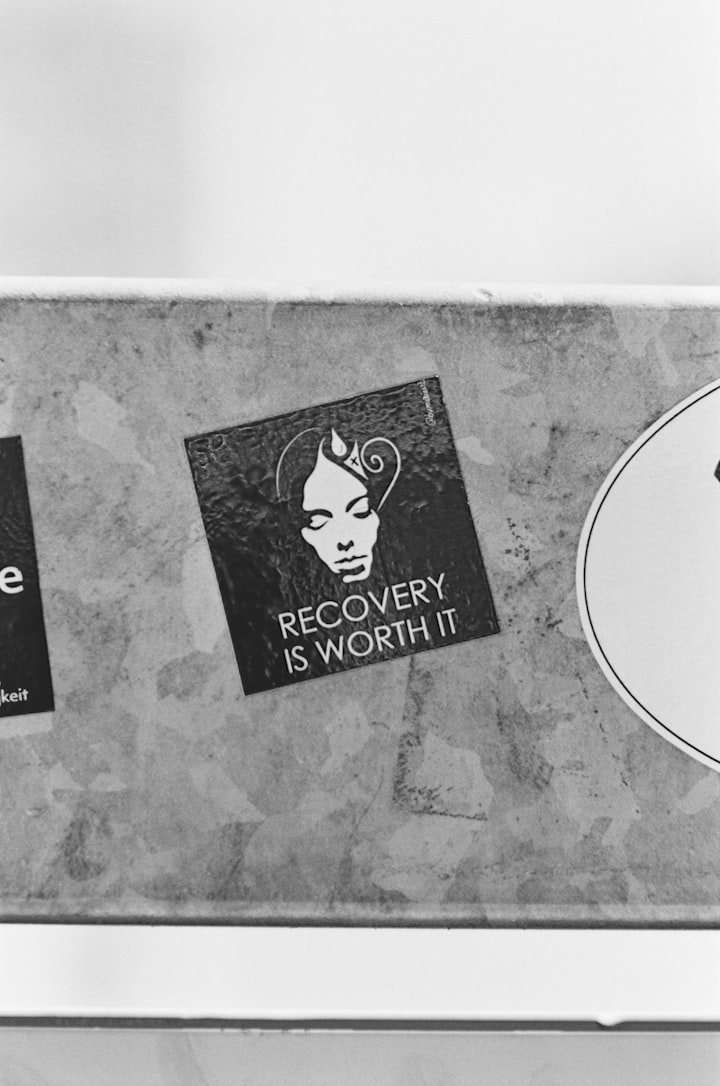What It Feels Like When Professionals Get a Diagnosis Wrong, and How I Am Living with That
I was diagnosed with Anxiety and Depression, then EUPD and finally, Anxiety, Depression, and PTSD. It took many years of pain, trauma, loss, and frustration to get a proper diagnosis, and I hope my article helps professionals understand why it is important to get the diagnosis right.

Any mental health problem is not easy to live with, nor is it easy for people around us to accept and support us. However, having three different mental health problems can feel like you are living life constantly on edge. This article is intended to help professionals understand why it is important to get the diagnosis right, and what it feels like to live with my three new diagnoses.
When my mental health problems started in the early 90s, I was originally diagnosed with anxiety and depression after a "revolving door" problem of admission after admission to psychiatric wards. Admittedly, I was a mess, self-harming, tearful, not eating, suicidal, and no idea who I was. My true story is at that time, my life was a constant battle with domestic violence, bullying, sexual assault, harassment, and homelessness, which is what I was going through before my diagnosis. I had little confidence in myself and no self-esteem even after becoming a parent. In 2012, my diagnosis was reoriented from this to Emotionally Unstable Personality Disorder, however, this diagnosis was only made after I spoke out about the violence. It was then used as evidence against me, branding my speaking out as a result of my mental health and I was then accused of being the abusive one, leading my children into the system. Around 2016, sometime after these events, it was reoriented again to Anxiety, Depression, and PTSD, as my psychiatrist felt I had been wrongly diagnosed. Being diagnosed with EUPD had torn my family apart, and having my diagnosis reoriented was frustrating and upsetting, especially as I lost a child to adoption because of it. One cluster of EUPD is violent tendencies, however, this is a cluster of many symptoms and EUPD affects individuals individually. Professionals involved in childcare who are not trained in the area, often assume the term "EUPD" means the person with the diagnosis has all the symptoms, and despite being reassured by my mental health team that I was not violent, they continued with their own belief instead of listening to the team looking after me. Even worse was that my team were never asked to give evidence regarding my symptoms, and during my case in court, my mental health team was only asked to confirm the diagnosis, they were never allowed to talk about my symptoms.
My first symptoms started as very low mood, constant tears, no appetite, a fear of public places, fear of people, and a fear of being alone. This started after the birth of my first child and during his upbringing, of which I had a very traumatic time, in particular after my second child was born. After leaving the area in which I got hurt, the symptoms went away for a while, however, after I had my sixth child, they came back in a very violent way, leaving me feeling terrified of myself, my children, and the adult friends and family that I had. I started experiencing nightmares, flashbacks, freezing episodes in the street, panicking in public places, and I lost the ability to sing on stage without fear, something I was always confident about through out childhood. I spent many years like this, my diagnosis kept constantly changing, and eventually professionals decided this was EUPD.
In 2016, I saw a psychiatrist and had my whole diagnosis reviewed. He felt that the reason I was diagnosed with different diagnoses in the first place was because I had been through multiple trauma, and my symptoms fitted some clusters of EUPD. However, I took another assessment and I didn't meet the criteria for it. To be diagnosed at that time, I was told I needed to display at least five symptoms out of the clusters, where as I only had three, and they very clearly fell under Anxiety, Depression, and PTSD. To hear this was painful, because for years I had tried talking about the violence I had been going through, and for years I was branded a liar by the very services who were supposed to be helping me, and I was also told it was "my fault for letting these people do the things they did" and that I "should have been more responsible." However, the professionals saying this were never there when I was attacked, they only ever saw me before or after the attacks had taken place, and as some of it was emotional and financial, I did not have many scars. When the physical attacks did take place, I tried reporting them and showed the bruising I did have to the people helping me, but it was dismissed as a domestic, despite gangs being involved, my home being smashed up, and my children being at risk—something which I got the blame for over and over again. What I find strange about this is I had researched my symptoms and every symptom I had fit Anxiety, Depression, and PTSD (Anxiety and Depression being the first two diagnoses made by a previous psychiatric hospital before I moved). The symptoms also fitted with my previous diagnosis, which was made in Yorkshire before I relocated to Dorset, and I was only diagnosed with EUPD when concerns were being raised over my children, two of whom I got back after a previous case, and after being confirmed by both a psychiatrist and a psychologist that I was stable enough to look after them. The evidence I had from this previous case was not allowed to be used in my second case.
Moving forward from a past like this one is really hard. I had done some therapy, but was discharged unfairly from my final session for being physically ill, even though my mental health team had proof in my medical records and I did tell them. I was offered EMDR from a company called Steps2Wellbeing, however, that meant revisiting the trauma and I had done this enough during Dialectal Behavioural Therapy. And I still do it through nightmares and flashbacks. Revisiting the trauma when I'm already doing it will increase my problem and there is no proof that the EMDR actually works; it works for some, but not everyone. I was told that it has not been properly proven to work yet, and I am not willing to pay for something that might not be helpful to me.
So, what does it feel like living with my three new diagnoses of Anxiety, Depression, and PTSD?
It is hard to describe, and it depends on what happens during my day. If my day is quiet with no difficult events, then I am usually low in mood—but managing. However, say I arrange to go out, have a meeting, or I am in a large crowd. In events like this, it is like "walking on eggshells." I am constantly looking over my shoulder, expecting something bad to happen, my breathing quickens, I sweat, shake, get pins and needles, feel very sick, and occasionally, depending on the situation, have a flashback or pass out. This usually occurs when I have an anxiety attack mixed with PTSD flashbacks. At the end of it, my depression kicks in and my mood can be severely low, I can isolate myself for weeks at a time, lose my appetite, be in tears or just numb a lot, and I will sleep heavily, mixed with periods of insomnia. These symptoms can be particularly hard to deal with, particularly when I am out and about. When they occur, I need to take myself somewhere quiet, and if that is not possible, then I need someone to help me by helping me to breathe and try to focus on what is really happening around me so that I can use my therapy skills "in the moment" to bring me back to reality. After this, I won't remember the attack, and it is important not to remind me of it because that can trigger another attack.
At home, I am often alone. This is usually a time of anxiety and depression for me. I don't like being downstairs alone too much, as that scares me because I was mostly downstairs when I was attacked—apart from the one incident that occurred upstairs—however, the worst of the trauma occurred when I sat in the lounge or on my doorstep. During these times, it is hard to stay calm and I can never tell when another attack is coming on. I cope by using my laptop, doing housework, studying, writing, music, and anything I can to take my mind off of it. This does not always work so I often have to call for help, though I cannot always do this, and some days I have to sit it out. When I feel depressed, I am tired, tearful, and unmotivated. Many questions about what might go wrong go through my head and I cannot always stop these, even when I push them away.
Now for me, I suffered many hard years in this position, and I lost a lot of people that I love in the process. I may have healed better had my diagnosis been correct, and the fact that it took so long and the loss of my children to get a proper diagnosis is painful. Sometimes, mistakes do and can happen, however, that should not be at the expense of one's family or safety. Professionals must be aware that they cannot see "behind closed doors," and like myself, many do not have witnesses to prove what they have been through—and they shouldn't have to. The trauma alone is enough to show the damage done. That damage can only be healed with a proper diagnosis. Without a proper diagnosis, one risks being treated for the wrong thing, and where there are children involved, it can lead to misunderstandings. For example, I was accused of being "violent" when, in fact, I was defending myself from being pinned down and attacked in front of my children. When you are faced with assault, there is a difference between being "purposefully violent" and "self-defence." Purposeful violence is where one deliberately sets out to hurt the other, and self-defence is where one tries to defend themselves and their family from being attacked in order to protect themselves and others around them. The question is, if I had not been diagnosed with EUPD in the first place, would I have been heard? There is a big stigma that people with this diagnosis are "always violent"—which is wrong, many people I have seen with this diagnosis are afraid of people being violent to them as they have been abused themselves. I feel professionals often play on this, and once a diagnosis is set in stone, the victim becomes the accused.
Years on since my diagnosis was reoriented, people are now listening to my truth. However, this does not take away the pain of what I have been through, am still going through, and the painful loss I have experienced away. My point is, a wrong diagnosis causes one to lose faith in the system, and it can have drastic consequences for a family, as can being misunderstood after coming out about being abused. This is why it is important to listen and make correct perceptions and facts about a person with mental illness. Misunderstandings can lead to a person with mental health problems and suffering from abuse to serious danger. Not everyone with a mental health problem lies and professionals have no right to judge a person based on a diagnosis without the correct facts first. My situation could have been stabilised years ago, if my truth had been heard, and that is what it comes down to: The "truth" being the person who went through it, not someone who did not witness it and made their own assumptions. As I said earlier, you cannot see "behind closed doors" and abuse does not always have witnesses, but changing the way professionals view people who are being abused and have mental health problems may save lives. My children and I were not lucky to be alive, we were lucky we survived at a time when we could have been helped, instead of having to fight to survive.
About the Creator
Carol Townend
Fiction, Horror, Sex, Love, Mental Health, Children's fiction and more. You'll find many stories in my profile. I don't believe in sticking with one Niche! I write, but I also read a lot too.






Comments
There are no comments for this story
Be the first to respond and start the conversation.